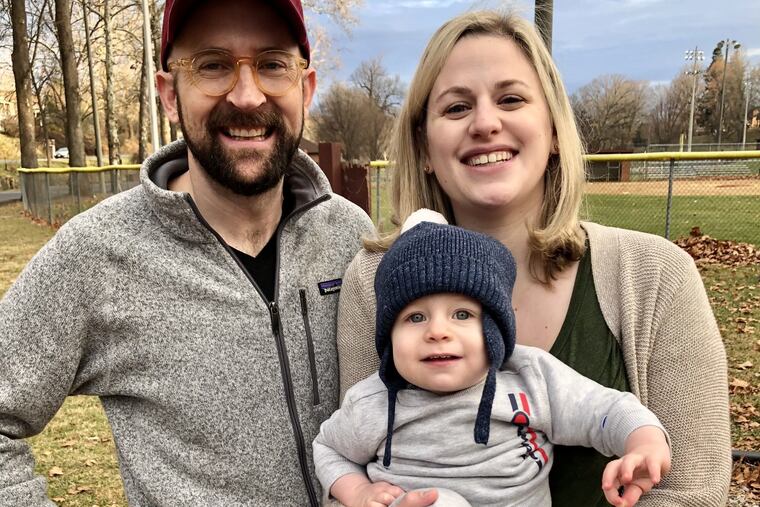A bite of raw cookie dough led to years of E. coli side effects for this South Philadelphia woman
Just one little nibble of raw cookie dough won't hurt anyone, right?

Margo Moskowitz made her first trip to the emergency department as a 20-year-old college student when the symptoms of a stomach bug intensified to the point where she felt like there was a ball of fire in her gut.
Unsure what was wrong, doctors put her in the hospital’s isolation unit and pumped her full of antibiotics. It took a specialist from a nearby hospital to link her illness to a bite of packaged raw cookie dough.
A week earlier, while lining up the gooey rounds of packaged raw cookie dough on a baking tray to bake for a campus event, Margo Moskowitz absentmindedly took a bite.
She’d done it countless times since childhood and didn’t think anything of it.
» READ MORE: Spice containers are the most contaminated surface in your kitchen
When the 20-year-old college student started feeling sick a week later, she suspected the flu. But the reality was much worse: Moskowitz had unknowingly eaten cookie dough that contained flour contaminated with E. coli, a foodborne bacteria that can lead to severe illness and hospitalization for kidney failure. The 2009 outbreak sickened at least 70 people, 65% of whom were children.
Moskowitz, now 33 and living in South Philadelphia slowly regained her strength and ability to eat. When she was discharged, hospital staff gave her a single pancake that made her heart leap — it was the best thing she’d ever tasted, she recalled.
But her battle with E. coli was far from over. Nine months later, Moskowitz was back in the ER with stomach pain — colitis, doctors told her, a holdover from her E. coli infection. For years, Moskowitz struggled with stomachaches.
“I consider myself lucky,” she said.
Advocating to stop foodborne illness
The list of foods she wouldn’t touch slowly thinned out, and she doesn’t constantly think about where bacteria may be lurking anymore.
Through her volunteer work as an advocate for Stop Foodborne Illness, a patient advocacy and education organization based in Chicago, Moskowitz met a woman whose doctors said she’d never be able to have children because of the damage E. coli did to her body, Moskowitz said.
Now a parent to a toddler born during the COVID-19 pandemic, Moskowitz has shifted her perspective and she’s begun thinking more about her run-in with food poisoning over a decade ago, especially when she hears comments about how healthy people rarely die from COVID.
“I’m one of those people who’s experienced an event you don’t think is going to happen to you,” she said.
» READ MORE: Should I wash my turkey? Follow these Thanksgiving food safety tips
She worries about accidentally giving her child contaminated food, especially since children are more vulnerable to severe illness.
She follows outbreak news from the CDC and Stop Foodborne Illness, and is adamant about handwashing at home. But she would like to see public health authorities do more to regulate the food industry and educate consumers about risks.
“We shouldn’t have to be so worried about this,” she said.